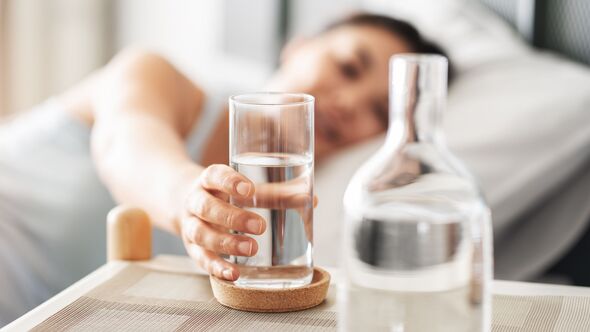
URGENT UPDATE: A health alert has been issued regarding the timing of water consumption, specifically before bedtime. Renowned doctor, Julio Maset, has taken to TikTok under the username @cinfasalud to caution viewers against drinking water right before going to sleep.
In his latest video, Doctor Maset emphasizes the importance of hydration but highlights potential drawbacks to late-night drinking. “Staying hydrated is key to the proper functioning of our body. Drinking water, even before going to bed, helps to avoid problems caused by dehydration, such as headaches and fatigue,” he states. However, he warns that consuming water too close to bedtime can lead to nighttime disruptions.
The doctor explains that the vasopressin hormone is adjusted during the night, which helps reduce urine production. This adjustment is crucial for maintaining a good water balance while we rest. “Drinking water right before going to bed could interrupt our rest. We may have to get up in the middle of the night to go to the bathroom,” he cautions.
Doctor Maset advises people to prioritize hydration throughout the day. “The best is to stay well hydrated throughout the day. In this way, the last water intake will not be excessive or too close to bedtime,” he concludes. This advice is particularly relevant as many individuals struggle with sleep disturbances, which can significantly impact overall health and well-being.
In a related health advisory, Victorian Plumbing has issued a warning against drinking water from bathroom taps. They assert that, while all homes in the UK are supplied with safe drinking water, numerous factors can compromise the quality of water from bathroom sources. “It’s best to avoid drinking from a bathroom tap if you can. Stick to bottled water or a kitchen tap,” experts recommend.
Plumbing materials, especially lead pipes used in many older homes, can pose health risks. Lead pipes were gradually phased out in the UK by the 1970s due to concerns over lead poisoning. This potential risk adds another layer of urgency to the discussion around safe drinking practices.
As these health warnings circulate, individuals are encouraged to reassess their hydration habits, especially as winter approaches and dehydration risks may increase. Staying informed about when and where to drink water could help prevent unnecessary disruptions to sleep and overall health.
WHAT TO WATCH FOR: As more health professionals weigh in on these hydration issues, individuals are urged to share their experiences and tips on social media, potentially sparking broader discussions on healthy drinking habits.
Stay tuned for more updates as this story develops. The health and safety of our communities depend on informed choices about hydration.





